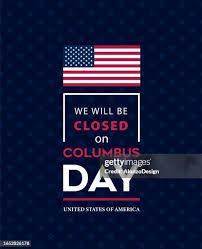
Introduction to Columbus Day
Columbus Day, observed on the second Monday of October, commemorates the landing of Christopher Columbus in the Americas in 1492. This day is significant as it honors the contributions of explorers and highlights the complex history of European colonization in the Americas. As discussions surrounding the impact of colonization increasingly gain visibility, Columbus Day has become a focal point of debate regarding its relevance and representation in contemporary society.
Current Observations and Celebrations
In several regions throughout Canada and the United States, Columbus Day is recognized as a public holiday, with various festivities taking place. Parades, historical reenactments, and educational activities are common ways communities choose to commemorate the event. For example, cities such as New York and Chicago host large parades celebrating Italian-American heritage, recognizing Columbus as a figure important to that cultural identity.
The Controversy Surrounding Columbus Day
Despite these celebrations, Columbus Day has faced increasing scrutiny for its association with the exploration and subsequent colonization that led to devastating impacts on Indigenous peoples. Many critics argue that the celebrations gloss over the suffering and injustices faced by Native populations. As a result, several states and municipalities have opted to replace Columbus Day with Indigenous Peoples’ Day, a move aimed at honoring the history and culture of Indigenous communities. This shift reflects a growing recognition and dialogue about the consequences of colonization and the need for reconciliation.
Conclusion: Looking Ahead
As the discussions surrounding Columbus Day evolve, its significance continues to be re-evaluated. This year, various events are again igniting conversations about representation and respect for Indigenous cultures. Communities across Canada and the United States are drawing attention to the importance of acknowledging both historical achievements and their repercussions. Moving forward, it remains essential for society to engage in open discussions about the legacies of exploration and colonization, balancing the need for historical perspective with the imperative of honoring and lifting up Indigenous voices.



